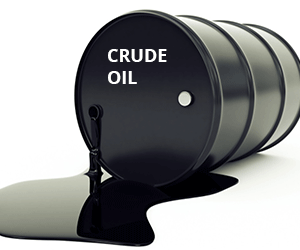
Oil prices slumped on Monday, ending three days of gains, as investors were concerned aggressive US interest rate hikes will weaken the global economy and dent fuel demand while a strengthening dollar also added to pressure.
Brent crude futures for October settlement declined US $1.20, or 1.2 per cent, to US $95.52 a barrel by 0458 GMT.
US West Texas Intermediate (WTI) crude futures for September delivery, due to expire on Monday, were down US $1.24, or 1.4 per cent, at US $89.53 a barrel. The more active October contract was at US $89.27, down US $1.17, or 1.3 per cent.
Both Brent and WTI climbed for a third straight day on Friday, but fell about 1.5 per cent for the week on a stronger dollar and demand fears.
“Growing fears over a global economic slowdown are behind the fall in oil markets,” said Tatsufumi Okoshi, senior economist at Nomura Securities.
“A higher US dollar also prompted fresh selling,” he said.
The dollar index rose to a five-week high on Monday after Richmond Fed President Thomas Barkin said the “urge” among central bankers was towards faster, front-loaded interest rate increases.
A stronger dollar makes oil more expensive for buyers in other currencies.
Investors will be paying close attention to comments by Fed Chair Jerome Powell when he addresses an annual global central banking conference in Jackson Hole, Wyoming, on Friday.
The Fed is seen as having more room to hike rates than central banks of other large economies which are more fragile.
Prices also fell on worries over slowing fuel demand in China, the world’s largest oil importer, because of a power crunch in the southwest caused by a heatwave.
“China’s power restriction in some regions is also a concern as it could affect economic activity,” said Hiroyuki Kikukawa, general manager of research at Nissan Securities.
China’s southwestern province of Sichuan will extend curbs on industrial power consumers until Aug. 25 as it tries to deal with dwindling hydropower output and surging household electricity demand following a long heatwave, financial news service Caixin said.
In a sign of overall concern about the Chinese economy, Beijing cut its benchmark lending rate and lowered the mortgage reference by a bigger margin on Monday, adding to last week’s easing measures, to revive an economy hobbled by a property crisis and a resurgence of COVID cases.
Meanwhile, the leaders of the United States, Britain, France and Germany discussed efforts to revive the 2015 Iran nuclear deal, the White House said on Sunday, though no further details were provided.
Source:Oil slumps on fears over economic slowdown, stronger dollar (asaaseradio.com)
